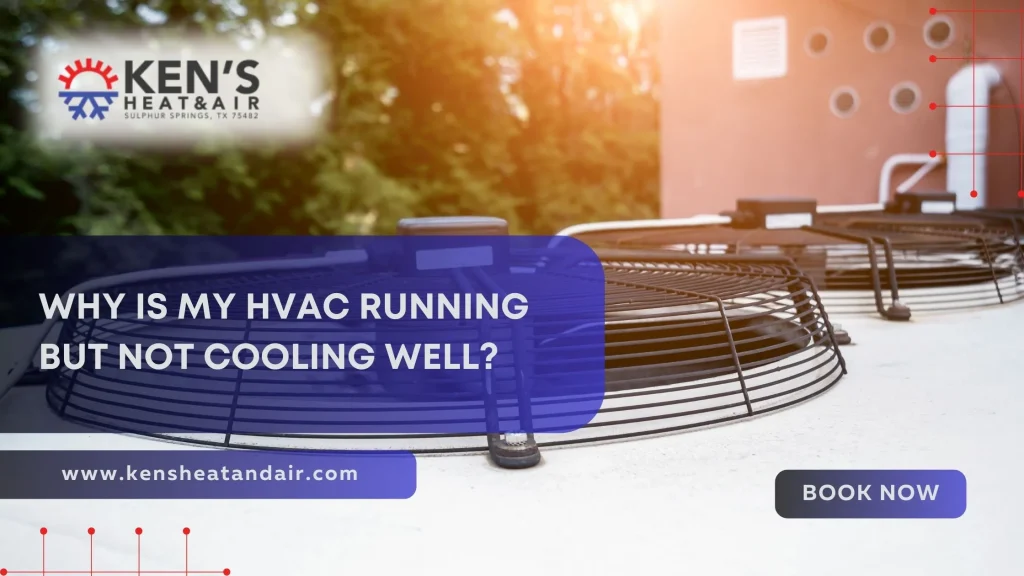
Introduction
Is your HVAC system running continuously but not cooling your home as it should? It can be frustrating and uncomfortable to deal with a malfunctioning air conditioning system, especially during the hot summer months. However, understanding the potential causes of this issue can help you troubleshoot and resolve the problem effectively.
Table of Contents
- Common Reasons for an HVAC Running But Not Cooling Well
- 1. Clogged Air Filter
- 2. Refrigerant Leak
- 3. Obstructed Condenser Unit
- 4. Faulty Compressor
- 5. Improperly Sized HVAC System
- 6. Ductwork Issues
- 7. Thermostat Problems
- How to Troubleshoot and Fix an HVAC Not Cooling Well
- FAQs
- Conclusion
Common Reasons for an HVAC Running But Not Cooling Well
1. Clogged Air Filter
One of the most common reasons for an HVAC system running but not cooling well is a clogged air filter. The air filter in your HVAC system helps trap dust, dirt, and other particles, preventing them from entering your home. Over time, the filter becomes dirty and restricts airflow, causing your HVAC system to work harder to cool your home.
To fix this issue, check your air filter and replace it if it is clogged or dirty. Regularly changing your air filter every 1-3 months can help maintain proper airflow and improve cooling efficiency.
2. Refrigerant Leak
Another possible reason for an HVAC system not cooling well is a refrigerant leak. Refrigerant is responsible for absorbing heat from the indoor air and releasing it outside. If there is a leak in the refrigerant lines, the system will not be able to remove heat effectively, resulting in poor cooling performance.
If you suspect a refrigerant leak, it’s best to contact a professional HVAC technician to inspect and repair the issue. They will be able to detect the leak, fix it, and recharge the system with the correct amount of refrigerant.
3. Obstructed Condenser Unit
The condenser unit of your HVAC system is located outside and plays a crucial role in removing heat from the refrigerant. If the condenser unit is obstructed by debris such as leaves, dirt, or grass clippings, it can restrict airflow and hinder the cooling process.
Check the area around your condenser unit and remove any obstructions. Additionally, ensure that there is at least two feet of clear space around the unit for proper airflow. Regularly cleaning the condenser coils can also help maintain optimal cooling performance.
4. Faulty Compressor
The compressor is responsible for circulating refrigerant and compressing it to increase its temperature. If the compressor is faulty or not functioning properly, it can result in inadequate cooling. Signs of a faulty compressor include loud or unusual noises coming from the unit.
If you suspect a faulty compressor, it’s essential to contact an HVAC professional to diagnose and repair the issue. The compressor is a complex component that requires specialized knowledge and tools for proper repair or replacement.
5. Improperly Sized HVAC System
The size of your HVAC system plays a significant role in its cooling efficiency. If your HVAC system is too small for your home, it will struggle to cool the space adequately. On the other hand, if it is too large, it may cycle on and off frequently, leading to inconsistent cooling.
If you suspect that your HVAC system is improperly sized, consult with an HVAC professional. They can assess your home’s cooling needs and recommend the appropriate system size for optimal performance.
6. Ductwork Issues
Ductwork plays a crucial role in distributing cooled air throughout your home. If there are leaks, gaps, or blockages in your ductwork, it can result in reduced airflow and poor cooling performance.
Inspect your ductwork for any visible issues such as disconnected or damaged sections. Seal any leaks or gaps using duct tape or mastic sealant. If you suspect significant ductwork problems, consider contacting an HVAC professional for a thorough inspection and repairs.
7. Thermostat Problems
A malfunctioning thermostat can also cause your HVAC system to run but not cool properly. If the thermostat is not calibrated correctly or has a faulty sensor, it may not accurately detect the temperature in your home, leading to inadequate cooling.
Check your thermostat settings and ensure they are correctly configured. If you suspect a problem with your thermostat, consider replacing it or contacting an HVAC professional for assistance.
How to Troubleshoot and Fix an HVAC Not Cooling Well
If your HVAC system is running but not cooling well, you can try the following troubleshooting steps:
- Check and replace the air filter if necessary.
- Inspect the condenser unit for any obstructions and clean the coils.
- Ensure that the thermostat settings are correct and functioning properly.
- If these steps do not resolve the issue, contact a professional HVAC technician for further diagnosis and repair.
FAQs
Q: How often should I change my HVAC air filter?
A: It is recommended to change your HVAC air filter every 1-3 months, depending on factors such as the filter type, household pets, and indoor air quality.
Q: Can I fix a refrigerant leak myself?
A: Fixing a refrigerant leak requires specialized knowledge and equipment. It is best to leave this task to a professional HVAC technician for safety and proper repair.
Q: Why is proper airflow important for cooling efficiency?
A: Proper airflow allows your HVAC system to distribute cooled air effectively throughout your home. Restricted airflow can result in reduced cooling performance and increased energy consumption.
Conclusion
When your HVAC system is running but not cooling well, it can be due to various factors such as a clogged air filter, refrigerant leak, obstructed condenser unit, faulty compressor, improperly sized system, ductwork issues, or thermostat problems. By understanding these potential causes and following the appropriate troubleshooting steps, you can restore your HVAC system’s cooling efficiency and enjoy a comfortable indoor environment once again.

